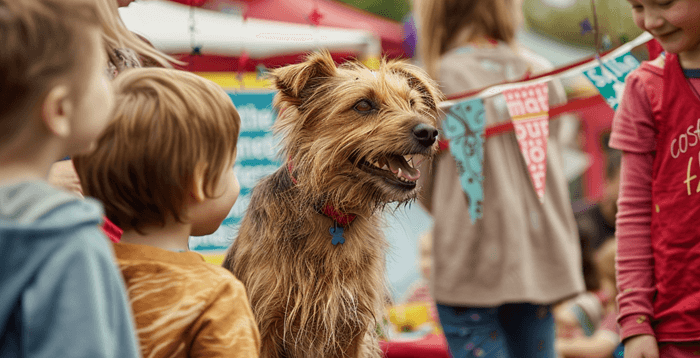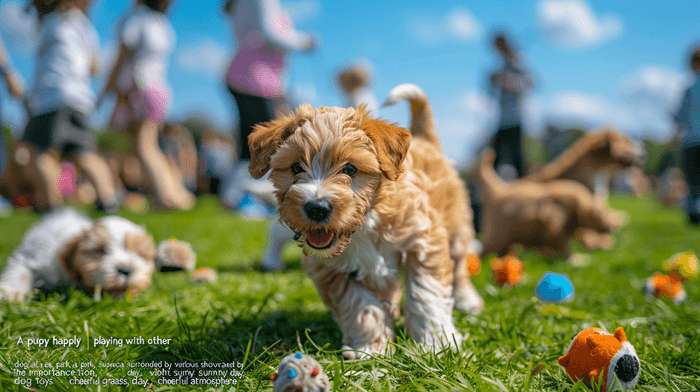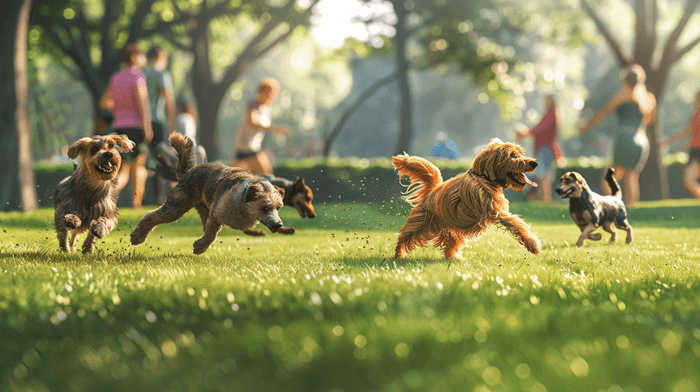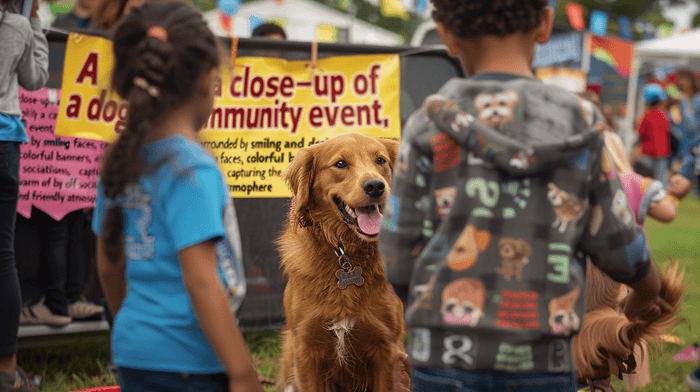
Socialize Your Dog effectively as one of the most crucial aspects of pet ownership. Early and proper socialization can help prevent behavioral issues that can lead to anxiety, aggression, and difficulties in social situations. In this article, we’ll explore the importance of early socialization, how to do it correctly, and the benefits it brings to your furry friend.
Have you ever noticed a dog that seems nervous or aggressive around other dogs or people? Often, these behavioral issues can be traced back to a lack of proper socialization during their formative weeks and months. Socializing your dog is essential to ensure they grow up to be a well-adjusted, confident, and friendly companion. Early socialization exposes your dog to a variety of experiences, environments, and individuals, helping them develop the social skills necessary to navigate the world confidently. In this guide, we will delve into the benefits of socializing your dog, practical tips on how to do it effectively, common pitfalls to avoid, and scientific backing for its importance.
Key Benefits of Socializing Your Dog

1. Prevention of Behavioral Issues
One of the primary benefits of socializing your dog is the prevention of behavioral problems. Dogs that are not adequately socialized may develop fear, anxiety, or aggression towards unfamiliar situations or individuals. By exposing your dog to various environments, sounds, and people from a young age, you help them learn that new experiences are safe and enjoyable.
2. Improved Confidence
Socialization helps to build your dog’s confidence. When they experience new sights, sounds, and situations, they learn to adapt and feel secure in their environment. A confident dog is less likely to exhibit fear-based behaviors, making walks and outings more enjoyable for both of you.
3. Enhanced Social Skills
Just like humans, dogs need social skills to interact effectively with others. Socialization teaches your dog how to communicate with other dogs and people. They learn to read body language, understand play signals, and develop appropriate responses to different situations, which can help prevent conflicts and misunderstandings.
4. Better Adaptability
A well-socialized dog is more adaptable to changes in their environment. Whether it’s a new home, a trip to the vet, or a family gathering, a socially confident dog is better equipped to handle changes without becoming stressed or anxious. This adaptability contributes to a smoother and more enjoyable life for both you and your dog.
5. Strengthened Bond with Owner
Socializing your dog also strengthens the bond between you and your pet. Engaging in social activities together fosters trust and companionship. As your dog experiences new things with you, they learn to rely on you for guidance, which can enhance your relationship and lead to a deeper connection.
Step-by-Step Guide to Socializing Your Dog: How to Socialize Your Dog Effectively

1. Start Early
The ideal time to begin socializing your dog is during their critical socialization period, which typically occurs between 3 and 14 weeks of age. During this time, puppies are particularly receptive to new experiences. Expose your puppy to various sights, sounds, and smells to create positive associations.
2. Gradual Exposure
Introduce your dog to new experiences gradually. Start with less overwhelming situations and gradually increase the intensity. For example, begin by introducing them to a calm, friendly dog before progressing to larger groups or busier environments.
3. Positive Reinforcement
Always use positive reinforcement when socializing your dog. Reward them with treats, praise, or playtime when they display calm and confident behavior in new situations. This approach helps your dog associate positive experiences with social interactions.
4. Socialize with Different Types of People and Dogs

Ensure your dog interacts with a variety of people, including children, adults, and individuals wearing different clothing or accessories. Similarly, expose them to different breeds and sizes of dogs. This exposure helps your dog become comfortable with diverse situations.
5. Controlled Environments
Consider enrolling your dog in puppy socialization classes. These classes provide a safe and controlled environment where your dog can learn to interact with other dogs and people under the guidance of a professional trainer. Such classes also help reinforce positive behaviors and provide valuable training tips.
Common Mistakes to Avoid

1. Overwhelming Experiences
One of the most common mistakes dog owners make is overwhelming their pets with too many new experiences at once. This can lead to fear and anxiety. Always ensure that socialization experiences are gradual and not too intense.
2. Ignoring Signs of Stress
Pay close attention to your dog’s body language. Signs of stress may include tucked tails, excessive barking, or hiding. If you notice these signs, remove your dog from the situation and try again later, focusing on less overwhelming scenarios.
3. Inconsistent Socialization
Consistency is key in socializing your dog. Make it a habit to expose them to new experiences regularly. Sporadic socialization may lead to setbacks in their progress and comfort level.
4. Not Using Positive Reinforcement
Failing to use positive reinforcement can lead to negative associations with socialization experiences. Always reward your dog for good behavior, helping them build positive connections with new situations.
5. Inadequate Socialization with Other Animals
When socializing your dog with other animals, ensure that interactions are safe and positive. Not all encounters are beneficial; some may be too aggressive or challenging. Always supervise interactions and choose playmates that are friendly and well-socialized.
Scientific Backing for the Importance of Socialization
1. Studies on Canine Behavior
Research has shown that dogs who are properly socialized during their youth are less likely to develop behavioral problems later in life. A study conducted by the University of California found that 70% of dogs that were not adequately socialized displayed signs of fear or aggression in social situations, while only 30% of socialized dogs exhibited those signs.
2. The Influence of Environment
Studies also suggest that the environment plays a crucial role in the development of canine behavior. A dog that has been exposed to a variety of situations from an early age is more likely to handle new experiences calmly. Therefore, socialization not only affects individual behavior but also how dogs relate to their environment and other animals.
3. The Connection to Mental Health
Socialization has also been linked to the mental health of dogs. A study from Purdue University found that dogs with positive social interactions are less likely to experience anxiety and depression. This highlights the importance of socialization not only in preventing behavioral issues but also in promoting positive mental health.
Conclusion

Socializing your dog is one of the most valuable investments you can make in their well-being and the quality of life you will share together. Proper socialization helps prevent behavioral problems, improves confidence, fosters positive behaviors, increases adaptability, and strengthens the bond between you and your pet.
Remember that socialization doesn’t end when your dog reaches adulthood; it is an ongoing process that requires attention and dedication. By following the guidelines mentioned and avoiding common mistakes, you’ll be well on your way to raising a sociable and well-balanced dog.
Finally, if you want to learn more about dog training and useful resources, don’t hesitate to check out the digital book Dog Trainer Bible. This resource is invaluable for any dog owner looking to better understand their pet’s behavior and how to train them effectively. Socialize your dog today and watch their personality flourish!
